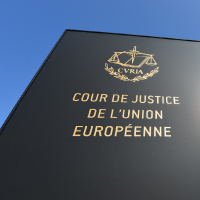
The European Union’s competition policy has been an important part of the EU’s work ever since it was set out in the Treaty of Rome in 1957. The treaty instituted “a system ensuring that competition in the common market is not distorted” with the aim to create a set of well-developed and effective competition rules, to help companies in the common market compete fairly with each other.
Through the years the EU has developed a strong European Competition policy by encouraging enterprise and efficiency, creating a wider choice for consumers, reducing prices and improving quality of products.
The above are the reasons why the EU is constantly fighting anticompetitive behavior, reviews the mergers and state aid and encourages liberalization in any form.
The European Competition policy of the EU is actually the reason why we have low prices of products inside the common market because the simplest way for a company to gain a high market share is to offer a better price. It is also the reason why we have better quality of products, more choice in every aspect and innovation in concepts and production techniques. Furthermore, the European Competition policy of the EU has helped the European companies to become stronger competitors outside the EU and be able to hold their own high standards against the global competitors.
In regard to the violations of the competition law, the National Competition Authorities of the Member States of the EU (the NCAs), would often handle the case having the power to enforce EU competition law, with essentially the same powers as the European Commission. Since 2007, NCAs have applied the EU competition rules in almost 400 decisions.
When the effects of the illegal behavior, like running a cartel, are felt in many countries across the EU -and beyond- the European Commission is replacing the NCAs in order to pursue better and effectively these trans-EU cases. However, the NCAs and the European Commission both have the obligation to exchange information on implementing EU competition rules through the European Competition Network (ECN).
In simple words, the NCAs and the European Commission are the competition authorities of the EU that make sure businesses and governments stick to EU rules on fair competition, while leaving space for innovation, unified standards and the development of small businesses.
Finally, it has to be mentioned that National Courts of the Member States of the EU have the power to decide whether a particular agreement complies with EU competition rules or not. Companies and consumers are always free to claim damages if they have suffered as a result of illegal behavior restricting competition.













